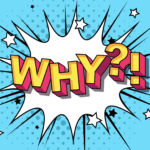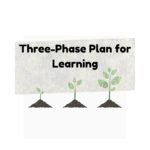* required field

“Why can’t I just highlight? Why do I have to annotate?” Ever heard this from a student? I don’t have to convince you of the value of annotating, but we do need to remind (and even convince) students that annotating a source can help us monitor for meaning. HERE’S THE WHY! Annotating can help us …Read more
Noticing an author’s purpose helps us 1) determine what’s important in a source, 2) begin to think critically about the information in a source, and 3) remember what we read. What follows are a few recommendations for teaching “author’s purpose.” Introduce the Mnemonic P.R.I.D.E. to identify author’s purpose more precisely I’m not a big fan …Read more

Have you ever asked a reader to tell you about what they learned in a short nonfiction book or article and they do one of the following? Or does the student do one of the following? If you experience the former more than the latter, it may be worth your time to engage the students …Read more
What do you do when emergent-early stage readers can’t decode a word because it’s not in their vocabulary? The second tip is to integrate unfamiliar vocabulary into the text introduction, as part of the conversation about what students are noticing as they preview the text. (In a previous entry, I wrote about holding emergent and …Read more
Ever notice a young reader get stuck on decoding a word in a text because the word is not in his or her vocabulary? Or maybe the student has heard the word, but not frequently, and it’s not easily retrievable? This can be a big problem for young readers of nonfiction at the emergent and …Read more
When students at the transitional or fluent stage of reading (Lexile 420L; DRA levels 18+ or alpha levels J+) struggle with a word, there are a few “go to” strategies and prompts I rely on. Is there a part you know? “Is there a part you know?” If it’s a word that has any parts …Read more
“Who will you tell?” This is a conversation I’ve started having with students at the guided reading table before they write in response to an informational source. I usually start by saying something like the following: When you go home tonight and your mom asks about school, you could just say, “It was okay” OR …Read more

Comparing details about similar topics can be a helpful reading strategy. In addition to teaching this, though, we also need to teach students to notice when they need to ask comparison questions. Below is a description of a series of demonstration lessons I gave focused on this issue. Phase One – Meet the Source Phase 2 …Read more

I offer a three-phase guide to teaching students how to effectively engage with informational sources such as texts, videos, and infographics. Phase 1 involves introducing the source, Phase 2 focuses on teaching strategies for understanding, and Phase 3 requires students to create a response, enhancing comprehension.
When I lean in for a reading conference with a student reading an informational source, I always start with “Tell me what you learned in this section. In the case of narrative nonfiction, I ask, “What just happened in this section of the text?” When I do this, I’m checking for within or “right there” …Read more